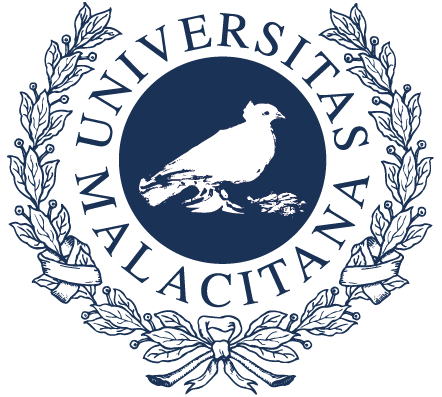CAEPIA 20/21 | XIX EDITION

The Conference of the Spanish Association for Artificial Intelligence (CAEPIA) is a biennial forum open to worldwide researchers to present and discuss their latest scientific and technological advances in Artificial Intelligence. The 19th edition, CAEPIA 20/21, will be held in Malaga, Spain, from the 22nd to the 24th September, 2021. Organized by the Networking and Emerging Optimization (NEO) research group.
As in previous editions, the objectives are: to facilitate the dissemination of new ideas and experiences, to strengthen the links among the different research groups involved, to promote knowledge transfer between junior researchers and consolidated groups, and to help spread new developments to society. To achieve the proposed objectives, the authors are requested to send original unpublished works, which describe relevant research about topics related to Artificial Intelligence from all points of view: formal, methodological, technical or applied.
Contact: caepia20-21_sg@easychair.orgChairs
General Chair
- Enrique Alba Universidad de Málaga
Chairwoman of the awards committee
- Eva Onaindía Universidad Politécnica de Valencia
Chairs of Tutorials and Workshops
- Rodrigo Gil-Merino Universidad of Málaga
- Araceli Sanchís Universidad Carlos III de Madrid
Chairman of General Session CAEPIA
- Francisco Chicano Universidad de Málaga
Chairmen of Competitions
- Alberto Bugarín Universidad de Santiago de Compostela
- Jose Antonio Gámez Universidad de Castilla la Mancha
Editor of the LNAI Proceedings of CAEPIA
- Gabriel Luque Universidad de Málaga
Area Chairs
The following are the Area managers of CAEPIA:
- Óscar Corcho, Universidad Politécnica de Madrid
- Javier del Ser, TECNALIA
- Juan Manuel Fernandez Luna, Universidad de Granada
- Jesús García Herrero, Universidad Carlos III de Madrid
- Pedro Larrañaga Múgica, Universidad Politécnica de Madrid
- Patricio Martínez Barco, Universidad de Alicante
- Miguel Molina Solana, Imperial College de Londres
- Serafín Moral Callejón, Universidad de Granada
- Eva Onaindia De La Rivaherrera, Universidad Politecnica de Valencia
- Juan Pavón Mestras, Universidad Complutense de Madrid
- David Pearce, Universidad Politénica de Madrid
- José Luis Pérez de la Cruz Molina, Universidad de Málaga
- Petia Radeva, Universidad de Barcelona
Works related to the areas Fuzzy Logic, Search and Optimization and Machine Learning will be evaluated by the Program Committee of the federated conferences, ESTYLF, MAEB and TAMIDA, respectively, with the help of the area chairs when necessary. The presidents of these conferences will be the responsible people of these works:
MAEB
- Carlos Cotta, Universidad de Málaga
- David Camacho, Universidad Autónoma de Madrid
ESTYLF
- Manuel Ojeda-Aciego, Universidad de Málaga
- Susana Montes, Universidad de Oviedo
TAMIDA
- Alicia Troncoso, Universidad Pablo de Olavide
- José Riquelme, Universidad de Sevilla
Topics
- AMBIENT INTELLIGENCE AND SMART ENVIRONMENTS
- Intelligent Sensor data fusion and collaboration in multi-sensor systems and networks
- Use of mobile, wireless, visual, and multi-modal sensor networks in intelligent systems
- Mobile/wearable intelligence
- Self-adaptive AmI systems
- Context awareness
- Cognitive and emotional awareness
- Behavior modeling
- Intention recognition
- Scene and event modeling, representation, and reconstruction
- Applications in health care, smart homes and smart buildings
- Modeling environments (homes, hospitals, transportation, roads, offices)
- COMPUTER VISION AND ROBOTICS
- Image / video analysis
- Biomedical Image analysis
- Activity / behavior recognition
- Feature extraction, grouping and segmentation
- Perception systems
- Biometrics
- Robot control
- Mobile robotics
- Micro robots and micro-manipulation
- Localization, navigation and mapping
- CONSTRAINTS, SEARCH AND PLANNING
- A.I. in Planning Games
- Constraint Optimization
- Constraint Satisfaction
- Dynamic Programming
- Heuristic Search
- Hierarchical Task Networks
- Markov Decision Processes
- Partially Observable Markov Decision Processes (POMDPs)
- Real Time Planning
- Satisfiability
- Scheduling
- Theoretical Foundations of Planning
- CREATIVITY AND ARTIFICIAL INTELLIGENCE
- Artificial intelligences based Art creations
- Artificial Intelligence based Music
- Artificial intelligence and literature/news generation
- Artificial intelligence creativity
- EDUCATION AND A.I.
- Educational data mining
- Machine Learning in Assisted Learning Systems
- Collaborative learning environments
- Virtual learning agents and virtual colleagues
- Smart teaching systems and simulations
- Smart teaching systems and gamification
- Student modeling
- Standards, authoring tools and development methodologies
- Technologies for specific learning domains
- EXPLAINABLE AND RESPONSIBLE A.I.
- Transparency in artificial intelligence models
- Post-Hoc Explicability Techniques for Artificial Intelligence Models
- Ethics in data-based learning
- Traceability of artificial intelligence models
- Reliability of learning artificial intelligence models
- Detection and treatment of bias in artificial intelligence data and models
- Methodology for an ethical and responsible use of artificial intelligence
- Security and data privacy in artificial intelligence models
- Neuro-symbolic reasoning to explain data-driven knowledge
- Evaluation of the interpretability of artificial intelligence models
- Creation of counter-examples for the inspection of artificial intelligence models
- Explicability and data fusion
- FOUNDATION, MODELS AND APPLICATIONS OF A.I.
- Foundations on Artificial Intelligence
- Artificial Intelligence based models
- Artificial Intelligence based Applicadtions
- Cognitive aspects of Artificial Intelligence
- Emergent Artificial Intelligence topics
- Artificial Intelligence and Philosophy
- FUZZY LOGIC
- Fundamentals of Fuzzy Logic
- Uncertainty modeling
- Knowledge acquisition and representation
- Approximate reasoning
- Decision making
- Information aggregation models and techniques
- Fuzzy databases
- Fuzzy logic and data mining
- Information retrieval
- Smart systems on the web
- Computing with words
- System modelling
- Fuzzy control
- Hardware for fuzzy logic
- Applications
- INTELLIGENT WEB AND INFORMATION RETRIEVAL
- Answer Search Systems
- Digital Libraries
- Information Extraction
- Information Integration
- Information Retrieval
- Recommender Systems
- Semantic web
- Web mining
- Web 2.0
- KNOWLEDGE REPRESENTATION, REASONING AND LOGIC
- Action, Change and Causality
- Computational Argumentation
- Automated Reasoning
- Knowledge Representation
- Computational Logic
- Description Logics and Ontologies
- Preferences and Beliefs
- Logic Programming
- Case-Based Reasoning
- Model-Based Reasoning
- Qualitative Reasoning
- Spatial and Temporal Reasoning
- Diagnosis and Abductive Reasoning
- Nonmonotonic Reasoning
- Knowledge Representation
- MACHINE LEARNING
- Clustering
- Classification
- Feature Selection
- Bayesian Networks and Markov Networks
- Learning from different types of data
- Machine Learning in non-standard situations
- Data reduction and/or transformation
- Learning from big data
- Machine Learning Applications
- MULTI-AGENT SYSTEMS
- Adaptation and self-organization
- Agent-Based Architectures and Programming
- Agent-Based Simulation and Emergent Behavior
- Agent Communication Languages
- Agreement Technologies (coordination, negotiation, argumentation, rules, confidence)
- Methodologies and Infrastructures (platforms, tools, environment)
- Social, Organizing and Institutional Approximations
- Agent-Based Modeling
- NATURAL-LANGUAGE PROCESSING
- Syntactic Analysis and Grammatical Inference
- Text Classification and Subjects
- Automatic Abstract Generation
- Lexical Disambiguation of Words
- Discourse, Dialogue and Pragmatics
- Text Mining
- Natural Language Modeling
- Natural Language Processing
- Multilingual Language Processing
- Speech Recognition
- Question Answering
- Machine Translation
- OPEN DATA AND ONTHOLOGIES
- Linked Open Data
- Knowledge Graphs
- High level and domain specific ontologies
- Ontology driven information systems
- Ontology Alignment
- Ontology and Experimental Data
- OPTIMIZATION AND SEARCH
- Applications of search and Optimization
- Bio-inspired Methods
- Hybrid Algorithms
- Mathematical Programming
- Metaheuristics
- Optimization, Search and Learning
- Parallel Algorithms
- Local and Global Optimization
- Theory of Search and Optimization
- UNCERTAINTY IN A.I.
- Approximate Reasoning
- Bayesian Networks
- Decision/Utility Theory
- Exact and Approximate Probabilistic Inference
- Modeling, Inference, Learning and Decision Making under Uncertainty
- Preference Elicitation
- Probabilistic Graphical Models





